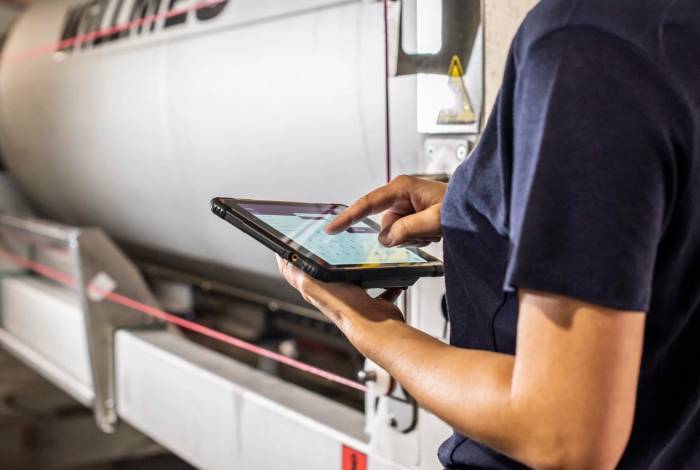Burgundy Winemakers Turn to Science to Preserve White Wine Longevity Amid Climate Change
VOLTA project combines tradition and technology, offering new tools to manage aging potential and maintain global reputation
2025-10-06

In Burgundy, the reputation of white wines has long rested on their ability to age gracefully. However, as climate change alters growing conditions and market expectations shift, winemakers are facing new challenges in preserving this hallmark of longevity. To address these changes, the Comité Bourgogne (BIVB), in partnership with Vinventions and a network of 40 local wineries, launched the VOLTA project in 2020. The initiative aims to better understand how the aging potential of Burgundy’s white wines is built and to provide winemakers with reliable tools to anticipate and manage it.
The VOLTA project uses Polyscan, a technology developed by Vinventions, to measure the impact of winemaking practices at every key stage. Over five vintages, thousands of measurements have been taken and compared with tasting results. This large-scale effort marks a first for Burgundy, bringing together growers and merchants in a collective approach that combines scientific research with practical experience.
Domitille Brosseau, head of oenology projects at the Comité Bourgogne, explained that VOLTA is designed to foster dialogue between science and the field. By involving both researchers and practitioners, the project seeks to accelerate knowledge transfer and help producers adapt their methods in response to evolving conditions.
Polyscan technology allows for real-time analysis of polyphenol content in grape musts and wines. These compounds play a crucial role in determining how wines respond to oxidation—a key factor in their ability to age well. The project has tracked hundreds of wine lots from harvest through bottling, revealing that decisions made during vinification have a direct effect on a wine’s resistance to oxidation.
Christine Pascal, head of oenology at Vinventions, noted that how grapes are handled at harvest is especially important when they are rich in polyphenols. Practices such as adding sulfites or crushing grapes can increase extraction of these compounds, raising the risk of oxidation later on. Conversely, limiting extraction helps strengthen a wine’s resistance.
The aging process itself also plays a significant role. According to Brosseau, traditional techniques like aging on lees and using lightly toasted new barrels have been shown by VOLTA’s data to enhance resistance to oxidation—confirming what many winemakers have long suspected but now can demonstrate scientifically.
Monitoring wines after bottling has provided further insights. Using Polyscan’s trend evolution tests at bottling, wines were classified according to their sensitivity to oxidation. Subsequent tastings confirmed these classifications: wines identified as sensitive developed honeyed or dried fruit notes more quickly, while those deemed resistant retained freshness and fruit character for longer periods.
Emmanuel Brenon, development manager at Vinventions, emphasized that these findings show longevity is not just inherited from tradition but can be actively shaped by choices made in the cellar. With VOLTA’s data-driven approach, winemakers now have measurable benchmarks and management tools that complement their expertise.
Frédéric Barnier, president of the Technical and Innovation Commission at Comité Bourgogne, said that this approach does not replace traditional know-how but enriches it. By providing objective data and practical guidance, VOLTA opens new possibilities for maintaining the unique character of Burgundy’s white wines and securing their international reputation.
Looking ahead, the project will expand its focus to study how grape ripeness at harvest affects wine longevity. This next phase aims to give producers even more information for adapting their practices as environmental conditions continue to evolve.
Vinventions, which supplies closure solutions for wine and other beverages worldwide, has played a central role in developing the analytical tools used in VOLTA. With over 650 employees across production sites in Mexico, Belgium, France, Italy, Argentina, South Africa and China, Vinventions emphasizes customer proximity, innovation and sustainability as core values.
As Burgundy’s winemakers confront new realities brought by climate change and shifting markets, projects like VOLTA represent an important step toward safeguarding the region’s legacy while embracing scientific advances that support quality and consistency for future generations.
Founded in 2007, Vinetur® is a registered trademark of VGSC S.L. with a long history in the wine industry.
VGSC, S.L. with VAT number B70255591 is a spanish company legally registered in the Commercial Register of the city of Santiago de Compostela, with registration number: Bulletin 181, Reference 356049 in Volume 13, Page 107, Section 6, Sheet 45028, Entry 2.
Email: [email protected]
Headquarters and offices located in Vilagarcia de Arousa, Spain.